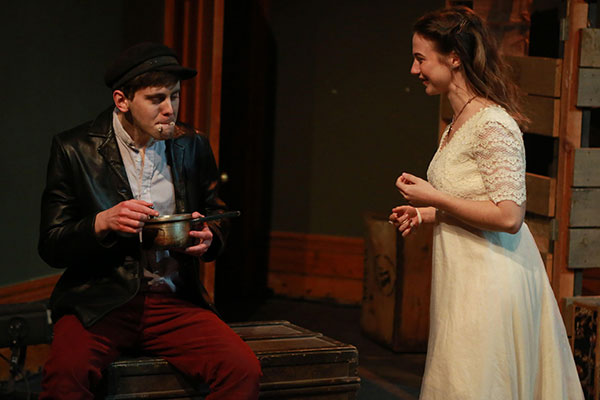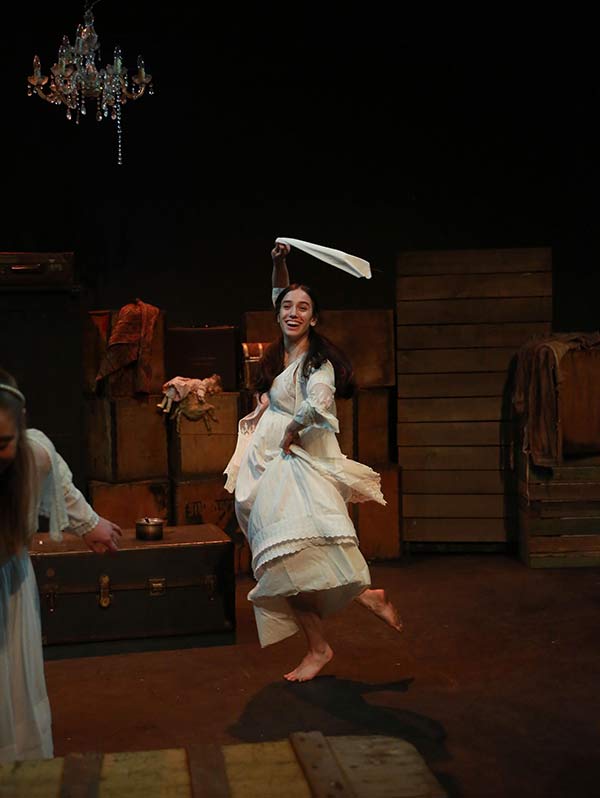A brand-new play from writer Rosemary Johns stands to ask a very important question, one that has been documented and observed over the course of history: How do we stay human in times of revolution and civil war?
In 'Tchekov At The House Of Special Purpose' 12 actors play real historical characters to tell the Russian story of the Romanov girls through a uniquely Australian perspective.
Based on the story of the Romanov girls, killed together in their home at the start of the Russian Revolution, 'Tchekov At The House Of Special Purpose' is an exciting and experimental project. It advances the theatrical forms of the great Russian writer Chekhov into an exposé of the Russian Revolution, exploring love, belief, and family values in a time of war and chaos, asking the question, what makes us human?
This unique historical perspective on the four Romanov girls has been made by writer Rosemary Johns, who says these four people have historically been very much background-dressing with no sense of who they are or their journey.

“I think the four girls have been lost to history,” Johns says. “With most retellings focusing on Nicholas, Alexandra, Rasputin and Alexei, or the imagined journey of the fictional Anastasia post the shootings.
“There's endless speculation of Anastasia's escape despite evidence proving her demise. Hence the unusual aspect of what I am writing, which focuses on the four sisters.
The humanity elements explored in 'Tchekov At The House Of Special Purpose' are, Johns agrees, not exclusive to the period of time the play explores. Stories like this of seclusion, oppression, and ultimately death, occur throughout history, particularly among young girls and women – the story of Anne Frank springs to mind. “What Alex [Menglet, Director] very much wanted to do, was to show how even though [these themes] overhang the play, these girls do the things they want to do.
“One of them – a known historical fact – falls in love with a guard, one is trying to put on a play – how do these young people still celebrate life rather than dwell on the gloom and doom? You find ways to subvert the oppression.”

It’s interesting how, with our ever-changing perception on what it is to be human, Johns was able to take the step out of the now and into the late 19th century to capture that essence for others to interpret. “This is where it was interesting to use [Chekhov’s] 'Three Sisters' as a doorway for me as a writer to step through,” she says. “It’s interesting structurally, little echoes of the play, like a window into the soul of the play. The Romanov girls love Chekhov, I love Chekhov, and so it becomes a meeting point for us.
“There’s a meta thing with Anastasia – for a long time there was a mythology that she had escaped. Hollywood films, a Broadway musical . . . And so we take that in the play and make that a driving force, that love of theatre and performance.
For the audience, Johns says this isn’t a lesson in history so much, but a telling that isn’t black and white or right and wrong. “There are so many shades to the characters, each has their own arc.
“There are never any easy answers, and this is where we try and focus on the humanity. I think we live in a world where we don’t have shades of grey, and we need that.”
'Tchekov At The House of Special Purpose' plays La Mama Courthouse 28 August-8 September.






